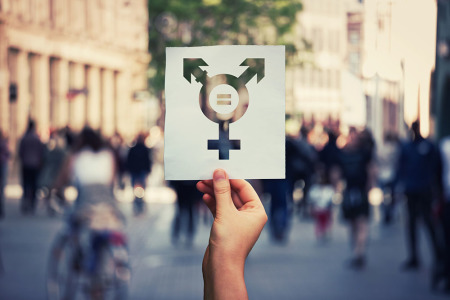Texas sues Biden admin. over EEOC guidance on trans workplace discrimination

Texas has filed a lawsuit against the Biden administration over federal guidance that, among other things, demands that employers allow trans-identified workers to use the bathrooms of their preferred gender identity rather than their biological sex.
Texas Attorney General Ken Paxton filed the lawsuit last week against the Equal Employment Opportunity Commission in the U.S. District Court for the Northern District of Texas, Amarillo Division.
The lawsuit argues that various provisions of a June 15 guidance are unlawful and misinterpret established federal civil rights laws and recent U.S. Supreme Court precedent.
"The June 15 Guidance makes several substantive changes including requirements that employers treat biological men as women — and biological women as men — when applying sex-specific policies or using sex-specific pronouns," stated the lawsuit.
"The June 15 Guidance did not articulate reasons that justify extending precedent governing federal employers to non-federal employers, whose liability is judged under a different standard."
In a statement, Paxton said that he believes states rather than the federal government "should be able to choose protection of privacy for their employers over subjective views of gender." He argued that "this illegal guidance puts many women and children at risk."
"If the Biden Administration thinks they can force states to comply with their political agenda, my office will fight against their radical attempt at social change," stated Paxton.
"These backdoor attempts to force businesses, including the State of Texas, to align with their beliefs is unacceptable."
To justify the new guidance, the EEOC cited the 2020 U.S. Supreme Court decision Bostock v. Clayton County. In that case, the nation's high court concluded that Title VII civil rights protections against sex discrimination applied to sexual orientation and gender identity, even though the law did not explicitly mention either category.
In a statement included with the announcement, EEOC Chair Charlotte A. Burrows called the Bostock decision "a historic milestone that resulted from the struggle, sacrifice, and vision of many brave LGBTQ+ individuals and allies who had championed civil rights for the LGBTQ+ communities."
"The new information will make it easier for people to understand their rights and responsibilities related to discrimination based on sexual orientation and gender identity," stated Burrows.
The announcement included a link to a technical assistance document that said employers had to allow trans-identified individuals use bathrooms of their preferred gender identity, could not require trans employees to adhere to a dress code consistent with their biological sex and that refusing to use a worker's preferred pronouns "could contribute to an unlawful hostile work environment."
In July, 21 state attorneys general, among them Paxton, sent a letter to President Joe Biden expressing opposition to the guidance, arguing that it threatened religious liberty and misinterpreted the Bostock ruling.
"The Court in Bostock narrowly addressed employment termination and explicitly refrained from addressing 'sex-segregated bathrooms, locker rooms, and dress codes," stated the letter.
"Similarly, Bostock did not provide any basis for a claim that using biologically accurate pronouns could violate the law. To the contrary, the First Amendment protects the right to ascribe pronouns to others based on their sex."





















